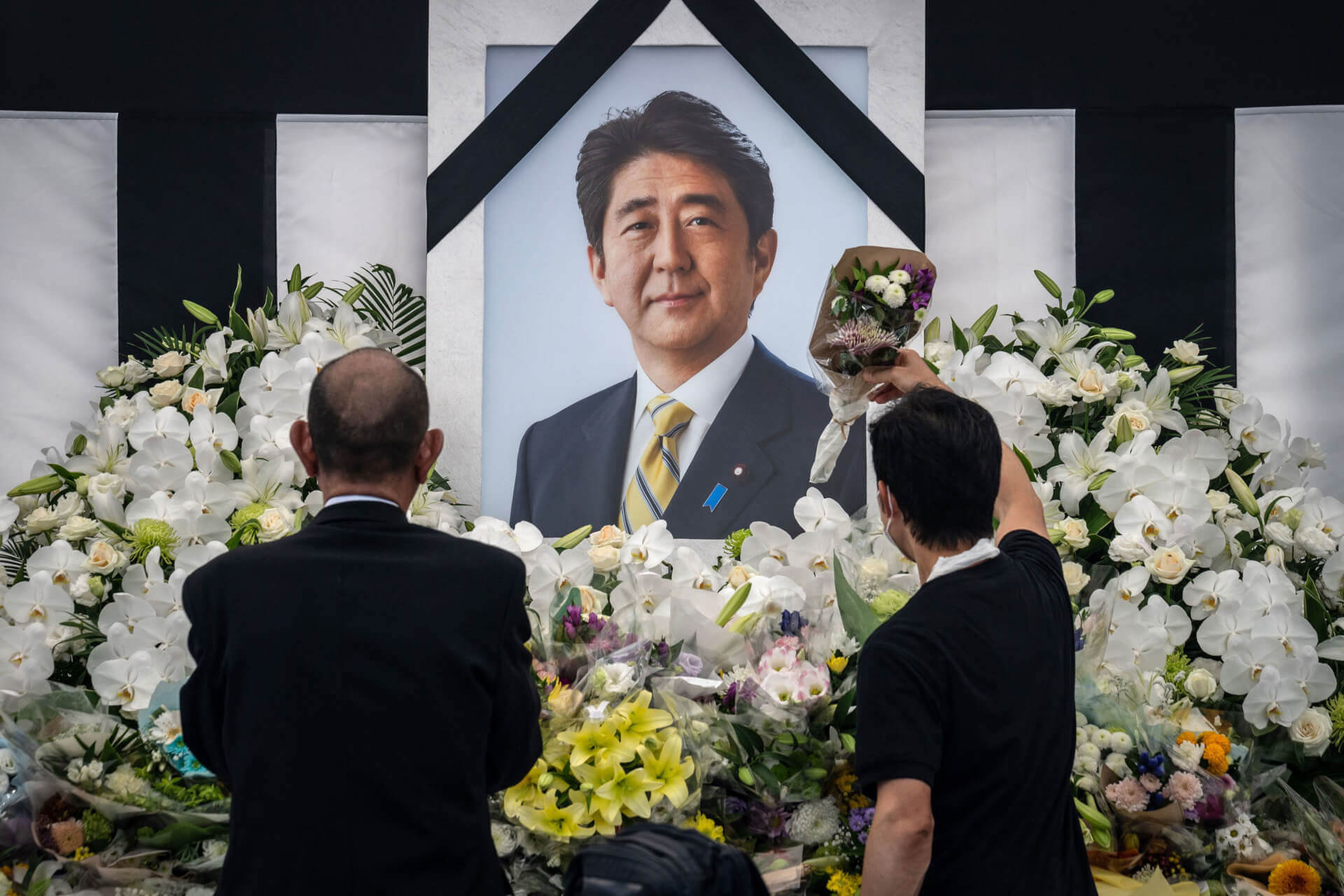Japan held a lavish state funeral for former Prime Minister (PM) Shinzo Abe in Tokyo on Tuesday amid heavy public protests over the cost to taxpayers and the ex-leader’s ties to the controversial Unification Church.
The state-funded funeral, which is set to cost taxpayers more than ¥1.6 billion ($11 million), was the first-of-its-kind event for a former PM in 55 years. During the postwar period, the country has held just one state funeral—in 1967 for former PM Shigeru Yoshida, who led the country’s recovery from World War II.
Although Abe’s time in office lasted for over eight and a half years, the decision to hold a state funeral was vehemently opposed by much of the Japanese public. According to a recent poll by the Kyodo News Agency, more than 70% of respondents said the government was overspending on the funeral.
PM @narendramodi offering floral tributes. pic.twitter.com/84wgVE5UaI
— Arindam Bagchi (@MEAIndia) September 27, 2022
The public discontent with the Kishida government’s decision to hold the expensive state funeral, in addition to growing discontent over inflation and stagnant wages, have resulted in a dip in incumbent PM Fumio Kishida’s popularity. A recent opinion poll by Kyodo showed that support for Kishida’s Cabinet had slipped to about 40%, the lowest since he took office.
Critics also argue that Abe’s leadership left a complicated political legacy, including allegations of abuse of power for personal gain and the ruling Liberal Democratic Party’s (LDP) ambiguous ties with the Unification Church, a religious group that has often been labelled as a cult.
As a reflection of this opposition, thousands of demonstrators gathered in the streets of Tokyo this morning to peacefully protest the ceremony. In fact, the costly funeral’s opponents have held multiple rallies in front of the PM’s office (PMO) and parliament building, and also filed lawsuits asking for the event to be cancelled. One man even set himself on fire on a street near the PMO earlier this month.
Against this backdrop, and due to the presence of several high-profile international dignitaries, Japan’s National Police Agency mobilised up to 20,000 officers to enforce strict security in Tokyo, particularly near the Nippon Budokan hall where the ceremony was held.
— Will Fee (@WillFee2) September 27, 2022
Despite heavy opposition, a large number of people gathered to pay their respects at a park near the venue.
Abe’s was attended by more than 4,000 people, including the heads of state of India, Cambodia, and Australia. Representatives from more than 195 countries were present at the high-profile ceremony.
During the ceremony, incumbent PM Fumio Kishida praised Abe for “putting in more effort than anyone in the world to maintain and promote the international order.” “History will remember you more for what you have accomplished than for the length [of your administration],” Kishida declared, referring to Abe being the country’s longest-serving PM under Japan’s current constitution.
He also alluded to Abe’s work on the issue of the abduction of Japanese citizens by North Korea. “I will do my utmost to carry on your legacy and ensure that the abductees can return home,” he said. “On the foundation you’ve laid, I pledge to build a sustainable, inclusive Japan, region and world, where all people can shine,” Kishida concluded.
Protesters demonstrate against the state funeral for Japan’s former prime minister Shinzo Abe in Tokyo on September 27.
— AFP News Agency (@AFP) September 27, 2022
Polls show 60% of Japanese oppose the decision to give Abe a state funeral - only the second for a former premier in the post-war period pic.twitter.com/xpY1VjgMCk
Meanwhile, former PM Yoshihide Suga, who served as Abe’s chief Cabinet secretary for over seven years, delivered a eulogy on behalf of Abe’s friends. “You were determined to make Japan a country that could contribute to the world in all areas as a truly peace-loving nation. You had to commit and make decisions each and every day. But we never saw you without a smile on your face,” he said.
Japan’s 67-year-old former PM died in early July, after succumbing to a close-range gunshot wound. Local police reported that the politician, who had been campaigning in Nara for an upcoming Upper House election, was shot by 41-year-old Tetsuya Yamagami with a homemade gun. Abe was then rushed to the hospital, where he was pronounced dead. The leader was then cremated at a Tokyo temple following a private funeral in July.
Yamagami later said that he held a grudge against the Unification Church, which he believed to be linked with the longtime leader of the ruling Liberal Democratic Party (LDP).
Abe is seen as one of the pioneers behind the movement for a ‘Free and Open Indo-Pacific’ (FOIP). In particular, he is regarded as the mastermind behind the Quadrilateral Security Dialogue, better known as the Quad, between Japan, India, Australia, and the United States (US).

